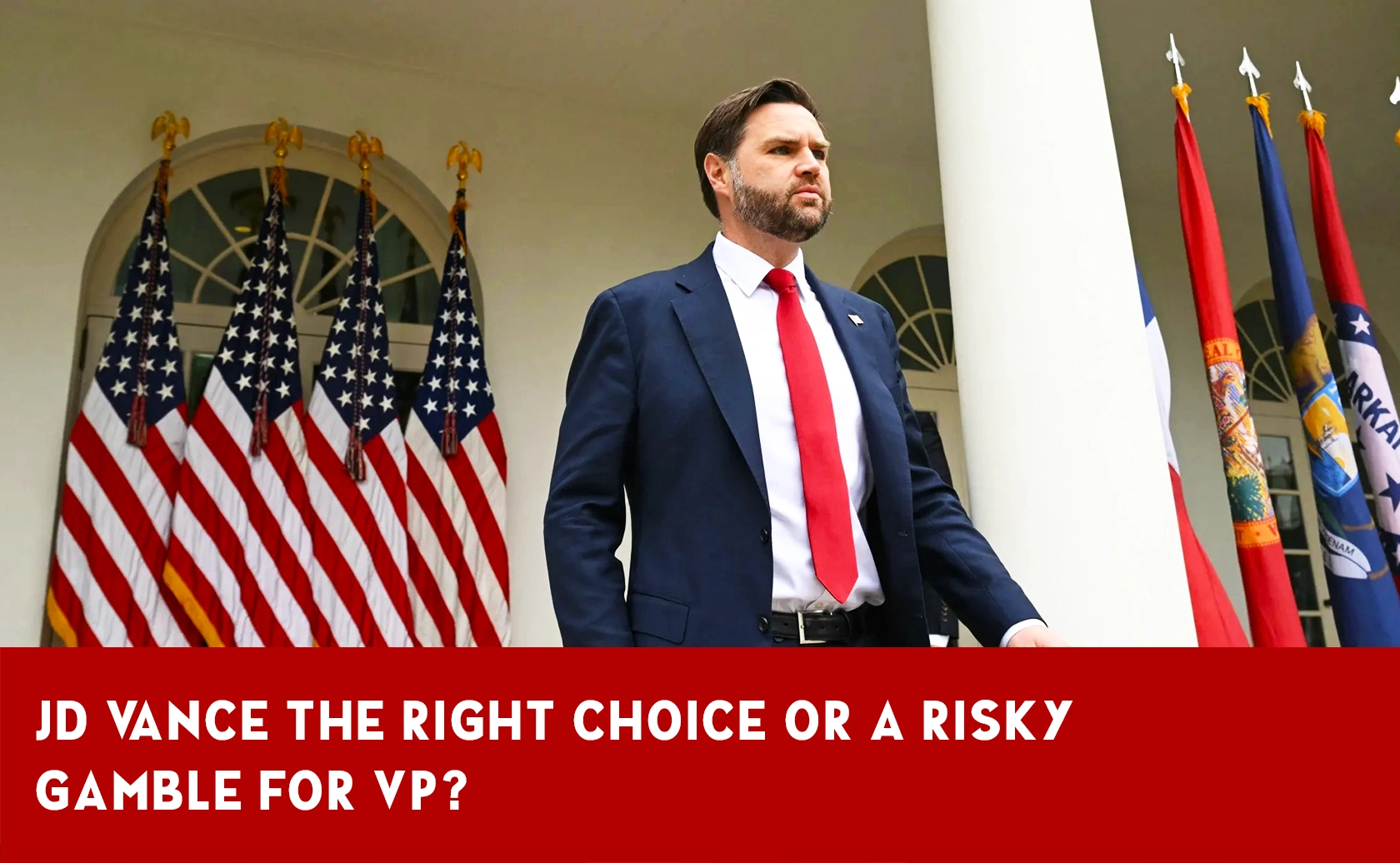JD Vance’s ascent to the vice presidency has sparked intense debate about his qualifications, policy impact, and independence within the Trump administration. Once a vocal critic of Donald Trump, Vance transformed into one of his most loyal allies, raising questions about whether his political trajectory reflects genuine leadership or opportunistic alignment. This article examines Vance’s legislative record, ideological shifts, and role as vice president to evaluate whether he merits his current position.
Table of Contents
The Transformation from “Never Trumper” to Trump Loyalist
Early Criticisms of Donald Trump
Before entering politics, Vance positioned himself as a staunch critic of Donald Trump. In 2016, he described himself as a “Never Trump guy” and openly questioned Trump’s fitness for office34. During a 2016 interview with Charlie Rose, Vance argued that Trump’s rhetoric exploited the frustrations of the white working class without offering substantive solutions4. He even privately compared Trump to Adolf Hitler, a revelation that resurfaced during his Senate campaign3. These criticisms painted Vance as an intellectual skeptic of Trump’s populist movement, aligning him more closely with traditional conservative thinkers like David Frum3.
Pivot to Trumpism
Vance’s shift began in earnest during his 2022 Senate campaign. Recognizing Trump’s enduring influence over the Republican base, Vance sought the former president’s endorsement by adopting his combative style and policy positions34. He appeared frequently on Tucker Carlson’s Fox News program, where he echoed Trump’s claims about election fraud and criticized immigration policies3. Billionaire Peter Thiel, a key Trump ally, facilitated Vance’s introduction to Mar-a-Lago, where he publicly reconciled with Trump despite their fraught history3. By 2021, Vance expressed regret for his earlier criticisms, stating, “I regret being wrong about the guy”4. This reversal secured Trump’s endorsement and propelled Vance to victory in Ohio’s Senate race12.
Legislative Record: Ambition vs. Achievement
Senate Tenure and Policy Initiatives
Vance’s Senate tenure (2023–2025) was marked by ambitious proposals but limited legislative success. He sponsored 57 bills, none of which became law, and co-sponsored 288 others, only two of which passed both chambers before being vetoed by President Biden1. His most notable effort, the bipartisan Railway Safety Act of 2023, aimed to prevent disasters like the East Palestine train derailment but failed due to lack of Republican support1. Similarly, his opposition to raising the debt ceiling in June 2023—a stance aligned with Trump’s fiscal conservatism—highlighted his willingness to prioritize ideological purity over governance1.
Controversial Proposals
Vance’s legislative agenda often mirrored Trump’s cultural battles. In July 2023, he partnered with Representative Marjorie Taylor Greene to introduce a bill criminalizing gender-affirming care for minors, proposing penalties of up to 12 years in prison1. He also spearheaded the Dismantle DEI Act (2024), which sought to eliminate federal diversity, equity, and inclusion programs1. While these efforts solidified his reputation as a culture-war conservative, they did little to address pressing issues like inflation or infrastructure, undermining claims of pragmatic leadership2.
The Loyalty Factor: Subservience or Strategy?
Alignment with Trump’s Agenda
As vice president, Vance has prioritized loyalty to Trump over independent policymaking. He chairs the Republican National Committee’s finance arm, a role that demands unwavering adherence to the party’s Trump-centric platform1. His speeches frequently parrot Trump’s talking points on immigration, trade, and foreign policy, with little deviation in tone or substance23. For example, Vance has consistently opposed U.S. military aid to Ukraine, echoing Trump’s skepticism of NATO and multilateral alliances2. This alignment has led critics to label him a “yes-man” rather than a visionary leader3.
Erosion of Institutional Norms
Vance’s tenure has also raised concerns about the erosion of vice presidential norms. Unlike predecessors such as Mike Pence or Joe Biden, who occasionally moderated their presidents’ policies, Vance has not publicly challenged Trump on any major issue12. His resignation from the Senate just 10 days into the 119th Congress—a move that allowed Ohio Governor Mike DeWine to appoint a replacement—underscored his focus on consolidating power within the executive branch rather than fostering bipartisan collaboration2.
Competence Under Scrutiny
Short Political Tenure and Experience Gaps
At 40 years old, Vance is the third-youngest vice president in U.S. history and the first Millennial to hold the office1. While his military service and legal credentials are commendable, his brief political career—less than two years in the Senate—has left gaps in his administrative experience. Unlike former Vice Presidents like Dick Cheney or Al Gore, who brought decades of congressional or gubernatorial expertise to the role, Vance’s resume lacks comparable depth2. His venture capital background, often touted as an asset, has yet to translate into tangible economic policies1.
Handling of Domestic Crises
Vance’s response to the 2023 banking crisis, which fell under his purview as a member of the Senate Banking Committee, drew mixed reviews. He advocated for deregulation measures reminiscent of Trump’s 2017 tax cuts but offered no novel solutions to stabilize regional banks1. Similarly, his silence during the 2024 Medicaid funding debate, a key issue for his Appalachian constituents, suggested a disconnect between his populist rhetoric and policy priorities2.
Conclusion: Merit or Mere Loyalty?
JD Vance’s vice presidency rests on a fragile foundation of ideological loyalty rather than demonstrable competence. While his ability to align with Trump’s base has secured his political survival, his lack of legislative achievements, abbreviated experience, and reliance on culture-war messaging raise doubts about his fitness for the role. Critics argue that Vance’s primary qualification is his willingness to amplify Trump’s agenda without question—a trait that may serve short-term political goals but undermines the broader responsibilities of the vice presidency.
Whether Vance “deserves” the position depends on one’s view of modern governance: Is the vice president’s role to serve as a principled advisor and administrative partner, or merely a loyal enforcer of the president’s will? For now, Vance’s career suggests the latter, leaving his legacy contingent on Trump’s fortunes rather than his own merits.




